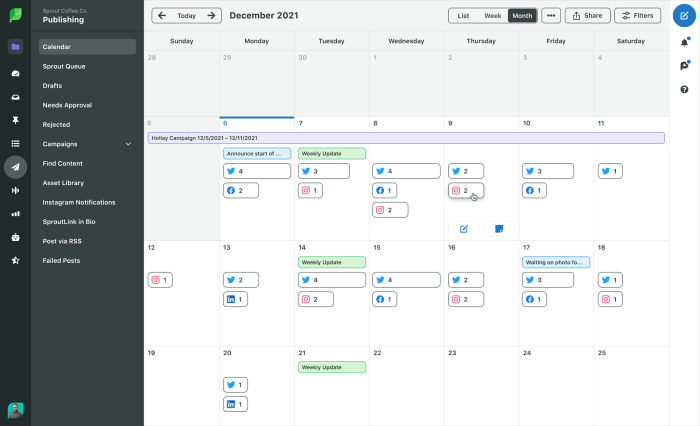Social media scheduling apps have revolutionized how businesses and individuals manage their online presence. No longer are we chained to our devices, frantically posting at optimal times. These powerful tools streamline content creation, scheduling, and analysis, allowing for strategic growth and increased engagement.
But with a plethora of options available, choosing the right app can feel overwhelming. This guide dives deep into the world of social media scheduling apps, examining their features, benefits, and future potential.
We’ll explore the competitive landscape, analyzing key players and their pricing models. We’ll dissect essential features like content calendars, scheduling functionalities, and robust analytics dashboards. Beyond the technical aspects, we’ll delve into user experience design, emphasizing the importance of intuitive interfaces and accessible features.
Finally, we’ll look ahead to emerging trends, including the impact of AI and the increasing role of automation in social media management.
Security and Privacy Considerations

In today’s digital landscape, the security and privacy of your data are paramount, especially when entrusting a platform with your social media presence. Social media scheduling apps handle sensitive information – your posts, your audience details, your brand’s voice – making robust security measures absolutely critical.
Neglecting this aspect can lead to significant consequences, from brand damage to legal repercussions.Data security and privacy are fundamental to building trust with users. A secure app protects user data from unauthorized access, use, disclosure, disruption, modification, or destruction.
This is achieved through a combination of technical safeguards, organizational policies, and user best practices.
Data Encryption and Storage, Social media scheduling app
Protecting user data begins with robust encryption. Data at rest (stored on servers) and data in transit (being sent over the internet) should be encrypted using strong, industry-standard algorithms. This ensures that even if data is intercepted, it remains unreadable without the correct decryption key.
Furthermore, data should be stored on secure servers with appropriate access controls, limiting access to authorized personnel only. For example, a well-designed app might utilize AES-256 encryption for data at rest and TLS 1.3 or later for data in transit.
Access Controls and Authentication
The app should employ strong authentication mechanisms, such as multi-factor authentication (MFA), to verify user identities. MFA adds an extra layer of security by requiring users to provide multiple forms of authentication, such as a password and a code sent to their phone or email.
Furthermore, access controls should be implemented to restrict access to sensitive data based on user roles and permissions. Only authorized personnel should have access to user data, and their actions should be logged and monitored.
Security Risks and Vulnerabilities
Social media scheduling apps face various security risks. These include data breaches due to hacking attempts, vulnerabilities in the app’s code (such as SQL injection or cross-site scripting), and insider threats from malicious employees. Phishing attacks, where users are tricked into revealing their credentials, also pose a significant risk.
For example, a poorly designed app might be vulnerable to SQL injection, allowing attackers to manipulate database queries and access sensitive user information. Regular security audits and penetration testing are crucial to identify and mitigate these vulnerabilities.
Best Practices for User Data Privacy
Users should actively participate in protecting their data. This includes choosing strong, unique passwords, enabling MFA wherever possible, and regularly reviewing the app’s privacy policy. Users should also be cautious about clicking on suspicious links or downloading attachments from unknown sources.
Apps should provide users with clear and concise information about how their data is collected, used, and protected, adhering to relevant data privacy regulations such as GDPR and CCPA. Transparency and user control over data are crucial aspects of maintaining trust and ensuring privacy.
Closing Notes: Social Media Scheduling App
Mastering social media requires strategy, and a well-chosen social media scheduling app is a cornerstone of that strategy. From streamlining your workflow to unlocking powerful analytics, these tools offer invaluable benefits for anyone aiming to maximize their online impact.
By understanding the market, selecting the right features, and anticipating future trends, you can leverage these apps to build a stronger, more engaged online community. Don’t just post; strategize. Don’t just react; anticipate. Use the power of social media scheduling apps to elevate your online game.
